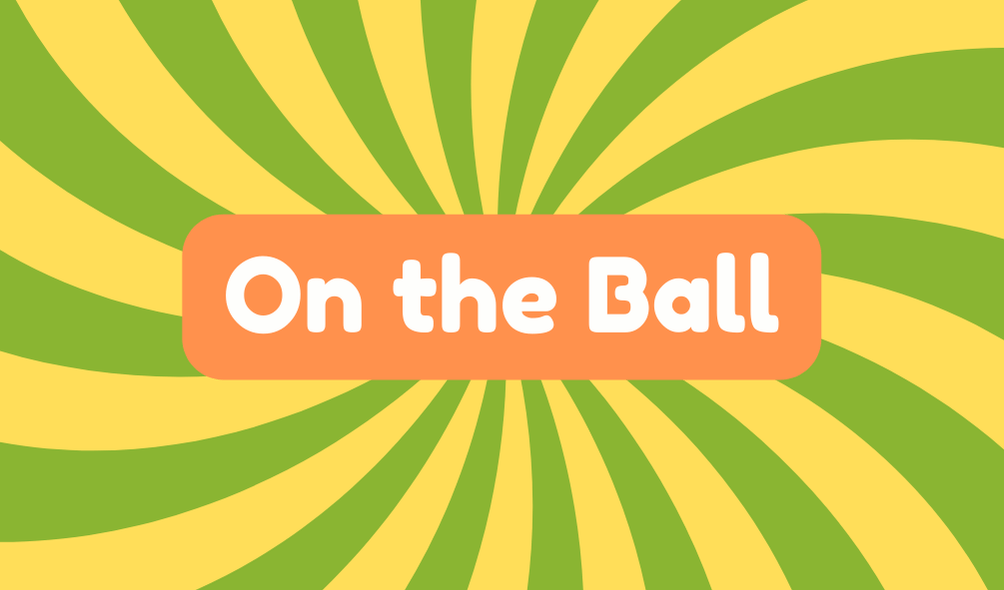When you say someone is "on the ball," it means they're alert and quick-thinking. This phrase has its roots in sports, specifically in ball games where focus is vital. It first appeared in print in 1864, highlighting the expectation for attentiveness, which has evolved into everyday language. For example, you might say, "In the meeting, she was really on the ball, catching every detail." Being on the ball is essential today for good teamwork and productivity. However, be cautious; too much pressure to stay alert can lead to burnout. You might find even more interesting insights ahead.
Synonyms
When it comes to synonyms for "on the ball," you've got several options that capture its essence of attentiveness and competence. You'll want to evaluate terms that emphasize alert readiness and proactive engagement, especially in our fast-paced world. Here are a few to think about:
- Sharp: Suggests quick thinking and intuition.
- Adept: Indicates a high level of skill and competence.
- Vigilant: Reflects constant awareness and readiness for action.
Choosing the right synonym can help convey the type of attentiveness you're aiming to express. Each word holds unique nuances, so think critically about the context in which you use them. Staying alert and engaged isn't just a buzzword—it's essential for thriving in any competitive landscape.
Example of Sentences
Having explored synonyms that capture the essence of being "on the ball," it's helpful to see these concepts in action through example sentences. These illustrate attentive behavior in various scenarios, especially in a sports context:
- "In the soccer match, the midfielder was always on the ball, anticipating the opponent's moves."
- "The project manager's keen insights showed he was right on the ball, steering the team toward success."
- "After a night of distractions, it's no surprise you weren't on the ball during your morning meeting."
These examples demonstrate how being "on the ball" enhances performance and decision-making. When you're attentive and proactive, you not only excel but also inspire others to elevate their game. It's essential to remain sharp; otherwise, opportunities might slip away.
Origin
The phrase "on the ball" traces its roots back to the world of sports, particularly ball games where focus and attentiveness are essential. Its etymological roots lie in the saying "keep your eye on the ball," a concept familiar in sports such as baseball and cricket. Historical usage showcases its evolution, with the first print citation appearing in 1864. Over time, this phrase has transformed from specific sports contexts into broader applications, reflecting societal expectations for alertness and readiness.
| Year | Usage Context | Emotional Impact |
|---|---|---|
| 1864 | Sport | Curiosity |
| 1900s | Everyday conversation | Empowerment |
| 1950s | Workplace communication | Responsibility |
| 2000s | Modern colloquial use | Engagement |
| Present | Diverse sectors | Motivation and alertness |
Collocations
Among the various contexts in which you might encounter the phrase "on the ball," collocations play a significant role in shaping its meaning and usage. Understanding these collocations can enhance your expression and comprehension. Here are some examples to reflect on:
- "Stay on the ball" emphasizes the need for ongoing alertness.
- "Right on the ball" highlights precision in responses or actions.
- "Get on the ball" suggests taking timely action.
These collocations usage provides insight into how the phrase aligns with competence and attentiveness. By connecting "on the ball" with different verbs and adjectives, you gain a deeper grasp of its implications. So, keep an eye on how you use these collocations; they're key to communicating effectively in various situations.
How to Use in Everyday Language
When you want to express that someone is alert and competent, using the phrase "on the ball" can enhance your communication. It's not just a saying; it's a tool for everyday applications. Think about how you might refer to a colleague who consistently meets deadlines or a friend who quickly adapts to changes. By saying they're on the ball, you highlight their attention to detail and readiness. This small shift in language can positively impact team dynamics and elevate discussions. However, be cautious—using it too often may dilute its meaning. Striking the right balance is key to fostering an environment focused on enhancing productivity, where everyone feels motivated to stay sharp and engaged.
Why Is It Still Relevant Today?
How does being "on the ball" resonate in today's fast-paced world? It's more relevant than ever, as modern applications of the phrase underscore our cultural significance. We're constantly bombarded with new information, and staying alert means thriving in innovation-driven environments. Here's a quick look at its impact:
| Benefits | Consequences |
|---|---|
| Enhanced productivity | Risk of burnout |
| Better decision-making | Opportunity overload |
| Greater agility | Potential for anxiety |
| Stronger teamwork | Dependence on tech |
Navigating this landscape involves more than just being alert; it requires discerning which opportunities are worth your attention. While being "on the ball" promotes success, it can also lead to challenges if not managed wisely.






